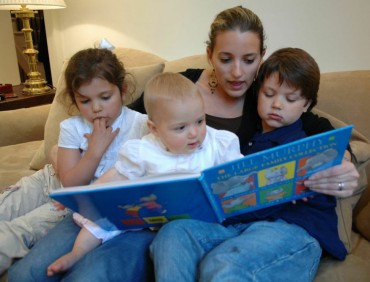How Can Parents Best Support Their Children’s Learning?
In all my years of classroom teaching, raising my own 4 children and supporting thousands of parents through ‘Educating Matters’, I have come to one very important conclusion: parents are undoubtedly a child’s first and most important teacher. Children will learn more from their parents than they could possibly learn from even the most dynamic, talented teachers. Of course I am not talking about specifics such as how to convert percentages into decimals or how electricity is made. Parents are there to teach life skills such as resilience, emotional intelligence, organisational skills, moral compass, independent thinking etc. Parents are also a child’s most important role model. They learn far more from what you do, than what you say.
1. Educate Yourself As Much As Possible
How can parents effectively support their children’s learning and ensure they make the most of what school has to offer? All you can expect from your child is for them to do their best and if you want them to have strong self-esteem and be self-motivated then nagging, repeating, justifying, reminding, bribing and shouting simply doesn’t work. That is why I deliver parenting courses which give parents the skills to really bring out the best in their children, helping them to reach their full potential.

2. Learn The Right Way To Encourage and Praise
Two very core skills that I focus on are ‘Descriptive Praise’ and ‘Reflective Listening’. Descriptive praise is about focusing on every tiny step in the right direction. Reinforcing the behaviour you want to see from your child by noticing all the things they are getting right rather than our natural tendency to point out what they are doing wrong. It is simply the most powerful motivator I know and the best way to encourage more learning and cooperation. Reflective listening or emotion coaching is a way of really listening to your child, showing genuine empathy and understanding by taking the cue from them and reflecting back how they are feeling. Both these skills work brilliantly with adults too – spouses, friends, work colleagues.
3. Instill A Love Of Reading
One of the greatest gifts any parent can give a child is instilling a love of reading which is why I have developed 3 reading seminars to guide parents as to how they can achieve this. I was delighted to hear the head of Eton recommending that parents should read aloud to kids as old as sixteen.

4. Know How And When To Unplug
Screens are obviously one of the greatest developments but also present the greatest challenge to parents of this generation. Whilst it is important to limit screen time, there are many wonderful resources which make learning more fun and engaging for all ages.
5. Make Home A Place For Learning
As much as possible, take advantage of the home context and look for opportunities for children to learn in an inspiring, meaningful way. Children of all ages learn the best through play and exploration. Model a passion for learning so your children understand that even adults are always learning. Be aware of what they are learning in school and find ways to engage them in conversation or visit galleries, museums, exhibitions.
6. Respect Their Need For Quiet Time
Children don’t like to be bombarded with lots of questions when they come home from school. Often a good way to make them feel important is talk to them about what happened in your day before asking about theirs. Invite them to offer you opinions or advice. A great tip to motivate and encourage positive thinking for any age is to ask them to name three good things about their day and you can do the same. It can be as simple as the sun shone, no maths homework, no traffic on the way to work etc.
7. Foster Your Relationship
What a child wants more than anything else in the world is their parent’s approval and simply to be understood. Children also like to be given responsibility and a feeling of independence. Nothing is more important than your relationship and connection with your child. That has to be in place before you can expect to motivate or encourage them to learn anything from you.

